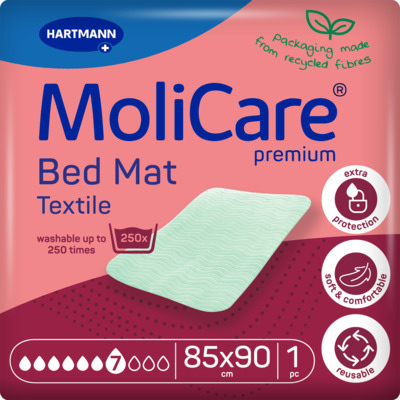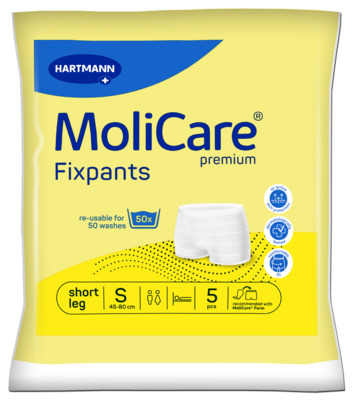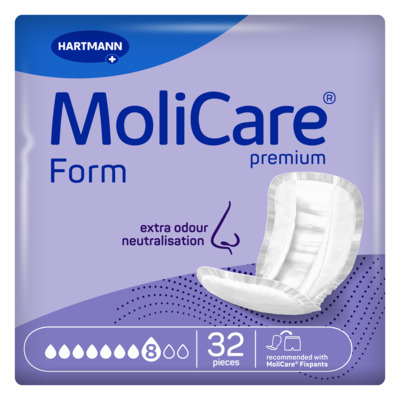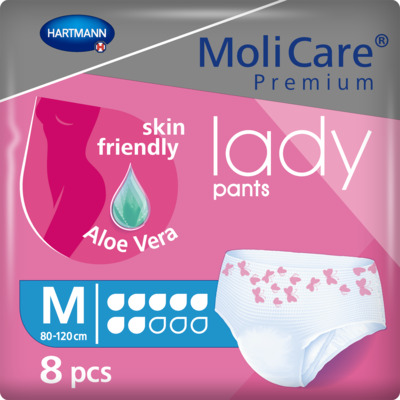Active living
Healthy Lifestyle for Over 50s
Maintaining your health and vitality after the age of 50 is both a challenge and an opportunity to embrace a healthier lifestyle. In this article, you will find out how to stay healthy over the age of 50, and we will offer insights into nurturing your body and mind for a vibrant and fulfilling life. From embracing a balanced diet and engaging in regular physical activity to fostering social connections and gaining better sleep, we'll explore the key opportunities to maintain your health and wellbeing.

Why Stay Healthy Over 50
If you developed less-than-ideal habits in the earlier stages of your life, it’s not too late to make changes now. Engaging in physical exercise and adopting a more nutritious diet can ensure your body's systems function at their best and this significantly decreases the risk of developing new health complications. As we age, our bodies naturally go through changes and can show signs of wear and tear, but achieving fitness at 50 and beyond is entirely possible.
Healthy Lifestyle for Over 50s
1. Diet:
Making changes to your diet is one of the stepping stones to a healthy life. A balanced diet rich in various whole foods provides most of the vitamins your body needs, although maintaining such balance can be challenging.
Vitamins are essential micronutrients that play a crucial role in maintaining our overall health.
Nutrients such as vitamins B2, B6, and B12 play an important role in maintaining good health and help convert nutrients into energy, so can prevent fatigue, allowing you to feel energised and capable. Consuming better sources of protein at this stage of life will aid in the preservation and growth of muscle mass.
Furthermore, the significance of vitamin D and calcium cannot be overstated for their roles in bone health, while vitamin C aids in the formation of collagen, vital for cartilage and, by extension, joint functionality.
To support digestive health and further promote bodily functions, the World Health Organization[1] recommends a daily fibre intake for adults of at least 25g, equivalent to a generous portion of fruits, vegetables, whole grains, and nuts and seeds.
Staying hydrated is very important, as water plays a critical role in nearly every bodily function, from physical to cognitive performance.

2. Consuming healthy fats
Re-evaluating your fat intake is essential. While it’s well-known that saturated fats may adversely affect heart health and cognitive functions, incorporating healthy fats found in fatty fish, flaxseed, and nuts into your diet can offer considerable benefits for both your heart and brain health.
Learn about bladder cleansing foods to improve your bladder and bowels
3. Smarter food choices
Making better food choices becomes even more critical as we age. With metabolism slowing down, selecting nutrient-dense food is essential to gain the nutrients we need to keep our body healthy. Incorporate a variety of colourful fruits and vegetables, dark leafy greens, and low-fat dairy products to ensure a sufficient intake of calcium for bone strength.
Furthermore, use fortified foods to bolster your vitamin D and B12 intake, and consciously reduce the consumption of empty calories from sugary beverages and snacks.
4. Reducing sodium
Moreover, managing sodium intake is crucial for maintaining healthy blood pressure levels, which tend to increase with age. Reducing salt consumption, particularly from processed and packaged foods, can help control blood pressure and contribute to overall heart health.
Find out about the worst foods that irritate the bladder and bowels.
5. Tracking your health
Embracing technology and mindful practices can significantly enhance your wellness journey. Incorporating a wearable fitness tracker or utilising smartphone apps to log your dietary intake offers a dynamic approach to monitoring your health. These tools not only provide insights into your physical activity and nutritional habits but also motivate you to set and achieve realistic health goals.
6. Protect your joints
Protecting your joints becomes increasingly important as you age. Contrary to outdated beliefs, activities like running can actually fortify your knees by strengthening the surrounding muscles, thereby reducing the risk of arthritis. It is important to build the level of exercise up gradually to give the muscles time to build up and strengthen. A gradual progression and listening to your body will allow you to achieve great results while avoiding injury.
For those with existing joint issues, performing low-impact exercises such as walking or cycling can offer substantial benefits without exacerbating pain, helping you stay fit at 50 and beyond.
For more information about the correlation between training and potential incontinence, read our guide on weightlifting and bladder leakage.

7. Staying in balance
Maintaining balance is crucial to preventing falls, which can lead to severe injuries. Integrating simple balance exercises into your daily routine, like standing on one foot or practising tai chi, can significantly improve your stability. Tai chi is known for its gentle, flowing movements and has been shown to halve the risk of falls among older adults when practised regularly. You can also try yoga which has many benefits, especially for maintaining control of the pelvic floor muscles.
8. Regaining strength
Building muscle strength is as vital as aerobic exercise. Strong muscles can protect your joints and bones, reducing the risk of injuries. Engaging in regular strength training can rejuvenate muscles and improve tone. It can also help to maintain balance, preserve bone density, and contribute to overall vitality and independence as we age.
9. Rediscovering sex
As we grow older, our perspective on sex often matures, bringing newfound confidence and enjoyment. The freedom from earlier life's constraints, coupled with years of experience, can enrich your intimate relationships, showcasing the benefits of ageing.

10. Refilling an empty home
If you find yourself in an empty nest, consider having pets as company. Pets, especially dogs, not only offer emotional support but also encourage more physical activity, which is beneficial for heart health and maintaining a routine. Engaging with pets has been linked to lower cholesterol levels and a reduced risk of heart disease, making them wonderful allies along your journey to developing a healthy lifestyle.
11. Reducing risk of Alzheimer's
Engaging in regular exercise can reduce the risk of cognitive decline and Alzheimer's disease. Activities such as walking, cycling, or gardening for just 30 minutes a day, five times a week, can significantly improve blood flow to the brain and encourage the growth of new cells. This routine can help you stay fit over 50, ensuring your mental faculties remain as vigorous as your physical health.
12. Learning new skills
Taking part in new learning activities can aid in maintaining your health. Venturing into unfamiliar territories, whether through travel, new friendships, or acquiring new skills like playing a musical instrument or learning a language, can invigorate your mental health and broaden your horizons for joy and fulfilment. Plus, it is a lot easier to learn in the 21st century as there are a vast range of online learning resources to maintain lifelong learning.

13. Socialising
Social interactions also play a crucial role in keeping your mind active and reducing the likelihood of memory issues. Spending quality time with friends, family, or engaging in volunteer work not only enriches your social life but has been linked to better cognitive function and a decreased risk of heart disease. The benefits of a socially active lifestyle underscore the importance of how to stay healthy and fit at any age.
14. Skin care
Taking care of your skin is another aspect of healthy ageing. The regular use of sunscreen with an SPF of 30 or higher can protect your skin from the ageing effects of the sun, helping to fend off wrinkles and maintain a youthful appearance. It's a simple yet effective way to maintain health and preserve your skin's resilience against the elements.
If you are struggling with incontinence, we strongly recommend using our MoliCare incontinence skin care products alongside our continence products to maintain better wellbeing.

15. Better sleep
Adequate sleep is vital for our overall well-being, especially as we age. If you find yourself struggling with sleep, it's important to address any underlying issues, such as stress or medical conditions. Ensuring you get at least eight hours of quality sleep each night can improve your energy levels and mood, making it easier to stay fit and healthy.
16. Embracing ageing
There can be positive aspects to ageing; many people report increased satisfaction and contentment and a greater appreciation for life's joys and achievements. Looking forward to the future with optimism and embracing the opportunity to stay healthy and fit can make the later years some of the most fulfilling of your life.
Be Healthier And Fit Over 50
In summary, life after 50 doesn’t need to be stressful and daunting; in fact, you could embrace new opportunities at this stage in your life. By incorporating regular physical activity, nurturing social connections, making smart dietary choices, and maintaining mental health, you can significantly improve your quality of life.
Staying fit and healthy at this stage isn't just about longevity—it's about thriving. Adopt these practices to ensure your later years are filled with vitality, happiness, and health, proving that being fit at 50 and beyond is not only possible but also rewarding.
Be sure to avoid these lifestyle mistakes people often make after the age of 50.

FAQs
Can you reshape your body at 50?
Yes, you can reshape your body at 50 by incorporating strength training to build muscle, engaging in cardiovascular exercises to improve heart health and burn fat, and following a nutritious diet to support overall body composition changes.
How can I live my best life in my 50s?
To live your best life in your 50s, focus on staying active, exploring new hobbies or interests, maintaining strong social connections, prioritising mental health, and adopting a healthy lifestyle that includes balanced nutrition and regular exercise.
Which lifestyle is the healthiest for people over 50?
The healthiest lifestyle for people over 50 includes regular physical activity, a diet rich in fruits, vegetables and whole grains, social engagement, cognitive stimulation, adequate sleep, stress management, and regular health check-ups.
World Health Organisation. (2023) WHO updates guidelines on fats and carbohydrates. [online] Available at: https://www.who.int/news/item/17-07-2023-who-updates-guidelines-on-fats-and-carbohydrates [accessed 15/02/24]
Mellardo, A., (2023) 5 Unhealthy Lifestyle Mistakes You’re Making After 50. Eat This, Not That! [online] Available at: https://www.eatthis.com/health-mistakes-after-50/ [accessed 15/02/24]

MoliCare® Premium Bed Mat Textile 7 drops
<p>The MoliCare® Premium Bed Mat Textile is our economic and durable water resistant mattress protector designed to make daily life with incontinence easier.</p>
MoliCare® Premium Fixpants Short Leg
<h2>Washable and durable</h2> <p>Embrace the convenience of washable and durable fixpants, designed to provide the best support and fit for your needs. These fixation pants are suitable for both women and men, providing a safe and secure hold for larger incontinence pads. With the two-piece system, you can trust that your pads will stay securely in place.</p> <p>Crafted from ladder-resistant dense material, these fixpants maintain their durability and integrity while keeping the pad's wetness indicator clearly visible. You can count on these pants to provide long-lasting support and comfort, for day and nightwear.</p> <h2>Skin-friendly and air-active material</h2> <p>Enjoy a high level of comfort with the soft waistband, skin-friendly and air-active material, and cross-elasticated threads for a close and comfortable fit.</p> <p>Experience optimum comfort with a choice of different leg lengths, ensuring you find the ideal fit that suits your body shape and preferences.</p> <p>With MoliCare® Premium Fixpants, you have a reliable and comfortable solution for keeping larger incontinence pads securely in place. Embrace the confidence and convenience of washable fixation pants, designed to provide the best support and fit for your needs. Say goodbye to worries and discomfort, and say hello to worry-free and comfortable days with MoliCare® Premium Fixpants.</p> <h2>Choosing your Size</h2> <p>Measure waist at the largest width between the waist and hips. Select the product size based on the below sizing.</p> <ul> <li>Small: 16-32 inches (45-80cm)</li> <li>Medium: 24-40 inches (60-100cm)</li> <li>Large: 32-48 inches (80-120cm)</li> <li>Extra Large: 40-64 inches (100-160cm)</li> </ul> <h2>Reliable delivery</h2> <p>We take care in the transportation of our products straight to your doorstep. Order from us and we will dispatch your items within 2-5 working days, and if you order over £50, you will receive free delivery.</p> <p>So stay comfortable during your everyday activities with the MoliCare® Premium Fixpants short leg range.</p>
MoliCare® Premium Form 8 Drops
<h2>Dermatologically tested incontinence pads</h2> <p>Experience comfort and protection against bladder weakness with MoliCare® Premium Form 8 Drops Pads. These pads are designed to provide you with exceptional comfort, tailored to your body's shape. Offering a range of absorbencies, they ensure the right level of protection for moderate to very severe incontinence. With elasticated seams to prevent urine from escaping from the side of the pad, these pads provide added security against leakages.</p> <h2>Absorbent Core Technology</h2> <p>At the core of these soft and breathable pads lies MoliCare®'s unique absorbent core technology, which effectively draws moisture away from your body, leaving your skin feeling dry. The soft textile-like backing sheet reduces rustling noise, while integrated odour neutralisers keep you feeling fresh and confident throughout the day. Dermatologically tested, we recommend pairing the MoliCare® Premium Form 8 Drops with our <a href="https://www.hartmanndirect.co.uk/incontinence-products/large-pads-and-fixation-pants" style="color:#0563c1; text-decoration:underline">fixation pants</a> for all-day comfort and security.</p> <h2>Convenient incontinence products</h2> <p>No matter the level of incontinence you experience, MoliCare® Premium Form 8 Drop Pads offer a convenient solution to confidently manage your needs. You can easily order our products online with the assurance of our price match promise and delivery straight to your doorstep. Enjoy free delivery on all orders over £50.</p> <p>If you require further assistance, our knowledgeable customer care team is available to answer any questions you may have. Contact us today at 0800 028 9470 and regain control of your life with MoliCare® Premium Form 8 Drops Pads.</p> <p>*Based on a study conducted among German nursing homes in 2021.</p>
